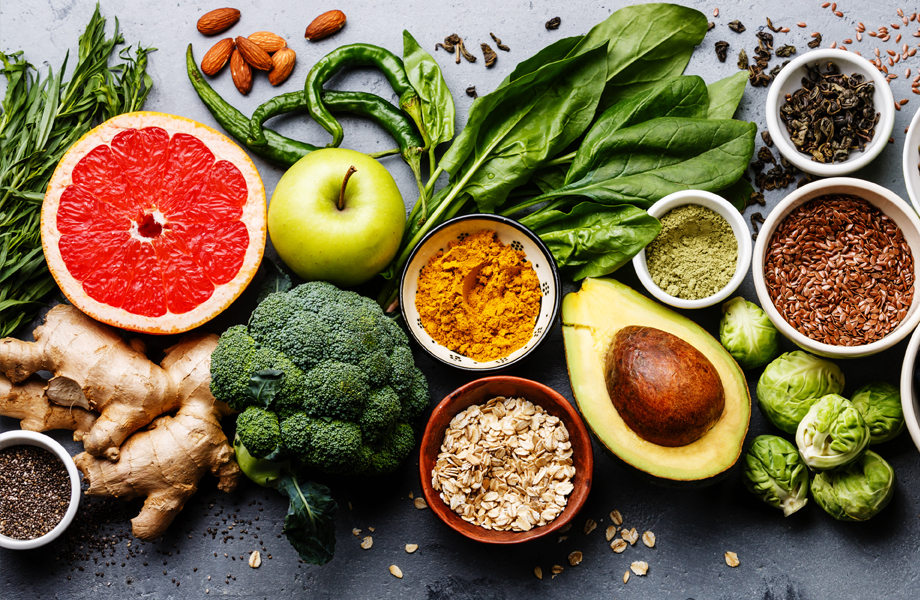The foods we eat have a direct relationship to the way our bodies protect us from toxins and infections. And now—more than ever—we all want to have a healthy and strong of an immune system as possible. While it can be hard to avoid, anxiety and panic can actually weaken your immune system.
People of all ages often don’t receive the proper immunity-boosting nutrients from food, and I understand how difficult it is to get the picky eaters in your family to load some fruits and vegetables on their plate. But did you know that foods like nuts, fish, and even red meat are packed with important vitamins and minerals that keep you and your loved ones healthy? In conjunction with normal sleep patterns and a healthy dose of exercise, a balanced mix of vitamins and minerals is exactly what your body needs.
Here are nine important vitamins and minerals that ensure a healthy immune system, found in simple and tasty foods even the meat lovers and picky eaters at your table will love.
Vitamin C
We’ve all heard of vitamin C. It’s one of the first vitamins we turn to when we start to feel unwell or come down with a cold. And, it’s an important vitamin to help build a healthy immune system. What most of us don’t know is that you can find vitamin C in foods other than citrus. Foods such as leafy green vegetables like spinach and kale, bell peppers, brussels sprouts, strawberries, and papaya are other awesome options to boost your immune system.
Vitamin E
Much like vitamin C, vitamin E is key for a healthy immune system and may help your body fight off infection. Vitamin E is a fat-soluble vitamin, meaning it requires the presence of fat to be absorbed properly. Nuts such as almonds, peanuts, hazelnuts, and sunflower seeds are all packed with vitamin E. You can also find it in spinach and broccoli.
Vitamin B6
Vitamin B6 is another critical vitamin to help our immune system function. Foods containing vitamin B6 include bananas, lean chicken breast, cold-water fish such as tuna and salmon, spinach, sweet potatoes, and avocado. And guess what? If you like hummus, chickpeas have it, too! Here’s a link to our quick and easy hummus recipe.
Vitamin A
Not only is vitamin A important for growth and development, but it also plays an important role in helping us keep a healthy immune system. Plus, it’s good for our vision. Vitamin A can be found in many fruits and vegetables, including carrots, mangos, sweet potatoes, pumpkin, cantaloupe, and squash.
Vitamin D
We all know we get vitamin D from the sun. But most of us don’t spend enough time in the sun to be able to absorb enough of this important vitamin. You can increase your intake through foods such as fatty fish (salmon, mackerel, tuna, and sardines), mushrooms, and fortified foods such as milk, orange juice, and whole-grain cereals.
Folate/Folic Acid
Folate is found naturally in many foods, and as folic acid in fortified foods. Legumes, leafy greens, eggs, beets, citrus, and asparagus are all great sources of folate. One hundred percent whole-grain products, enriched bread, pasta, and rice are other sources of folic acid.
Iron
Without iron, our bodies wouldn’t be able to carry oxygen to our cells. Iron can be found in protein sources such as lean poultry like chicken or turkey, red meats, beans, broccoli, and kale.
Selenium
You may never have heard of this important—yet powerful—mineral on which our immune system depends. Selenium seems to have a powerful effect on the immune system and may help prevent cardiovascular disease, thyroid problems, as well as other chronic diseases. You can find it in garlic, broccoli, sardines, tuna, brazil nuts, and barley.
Zinc
Zinc is an often-overlooked mineral that’s important to help build a healthy immune system. Shellfish such as crab, lobster, and mussels can be a terrific source of zinc. It can also be found in lean meats and poultry, yogurts, and chickpeas. Zinc appears to help slow down the immune response and control inflammation in your body. But be careful—too much zinc in your diet can actually inhibit the way our immune system functions.
Keep in Mind...
If you can’t find fresh produce, it’s okay to buy frozen. Frozen fruits and vegetables are picked and packed at the “peak” of ripeness, so their nutritional value remains intact. Try to stay away from fruits and vegetables that have added sugars, sauces, and sodium.
Remember to take care of yourself—as well as your family. While it may not seem like a priority, it’s important to take the time to drink lots of water, de-stress, and connect with your family. May we all be healthy in, spirit, mind, and body.
